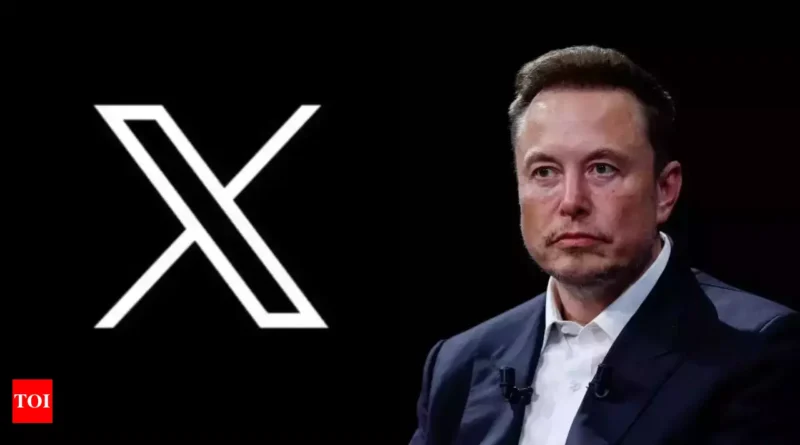X (Formerly Twitter) Bows to Brazil’s Supreme Court Orders: A Turning Point in Global Platform Compliance
Recent news placed X, formerly Twitter, in the spotlight for following Brazilian Supreme Court rulings. This is a dramatic shift in the position of the platform on how it thinks about its legal responsibilities and puts an entirely new level of attention on how multinational digital companies navigate many legal frameworks.
Background: Social Media Sites vs. Brazil Supreme Court
Recent years have witnessed the Brazilian Supreme Court take the lead in managing fake news and hate speech as well as other classified communications on sites like X. Since the dawn of social media, countries across the world have witnessed an increase in false information targeting political personalities, social issues, and elections. In this end, the Brazilian Supreme Court has acted in strict action to demand that sites like X abide by this type of content.
Historically, X (then Twitter) has resisted some of these mandates, citing concerns over freedom of speech. However, now that legal pressure has continued and penalties are threatened, X seems to be reversing course as it bows down to the court orders, such as taking down the posts and banning the users disseminating dangerous misinformation
What Does X’s Compliance Mean?
X’s decision to abide by the decisions of the Supreme Court of Brazil marks an important milestone in the way governments and the platform are engaged with one another. Governments around the world are making efforts to control the social media because it, as yet, exerts much greater influence on public opinion and political process.
This compliance will probably bring along a safer and a more hygienic internet environment into Brazil. The country can now anticipate less circulation of false information now that X has agreed to remove harmful content and accounts, especially during the heightened political occasions such as election seasons.
However, X’s actions in complying with these demands may set a precedent in its relations with other countries. Other areas where illegal and misleading content is rampant can make similar demands on the platform.
Global Tech Giants and National Sovereignty
It brought along with it a more complex nature of relationship among global tech companies and national governments. The social media firms have come to be multinational companies across international borders, having its activities and users spread across every nook and corner of the world. However, they also have to follow local rules and regulations, especially those countries where cybercrime and false information are turning more and more problematic.
X is acutely aware that the national governments have more power over the tech companies operating their businesses in their territories, through judgments by the Supreme Court of Brazil. As tech companies assert their influence beyond borders, this may also represent a larger trend towards regulation.
This compliance, however, throws up a host of questions regarding freedom of speech and how it is being managed in different countries. It becomes a high-wire balancing act, where the right to express opinions is weighed against the absolute need to regulate harmful content-a point that X’s assertion against Brazil’s Supreme Court seems to throw into sharp relief.
Challenges and Opportunities Ahead for X
While that case would yet help keep X out of harm’s way and further strengthen its position in such an important market, it is far from easy to replicate the Brazil supreme court’s case. To ensure that it filters out misleading as well as unsuitable content, the platform now has to enhance its content moderation practices, which may include better algorithms and manual oversight.
Simultaneously, this may mark a one-time chance for X to reposition itself in the world’s digital arena. Standing tall against harmful content could be just the kind of move that could lend it credibility both among users and governments and brand it as a responsible player within the social media playground.
The Future of Social Media Accountability
As X, therefore, changes with the Brazilian legal landscape, other countries might look forward to emulating a model of government oversight on tech platforms. Compliance may encourage more nations that face problems similar to this one to push for greater accountability from social media giants. This leads to legislation aimed at organizing content moderation, data privacy, and protection on a global level.
This further sends a strong message to other platforms that also need to align with government regulations across the globe. Social media’s ability to reach any corner of the world, and its influence on masses, makes it necessary for these companies to balance free expression and restricting the spread of harmful content.
Conclusion: A New Era of Platform Responsibility
It was on such a backdrop that X decided to submit to Brazil’s Supreme Court ruling-the new dawn, not only for the platform but for the tech industry in general. With more stringent regulations by governments and demands for increased accountability from social media companies around the world, it is becoming the “new norm” of compliance by courts.
This X movement places it on an increasing trajectory of balancing global operations with local regulations to possibly one day soon see a promise where tech giants will be more accountable to the regions they operate in. While going forward still holds endless challenges, it is exactly such a move that goes forward and gives an opportunity for X to lead the way towards a safer and more reliable online environment.
Image Source – https://timesofindia.indiatimes.com/
